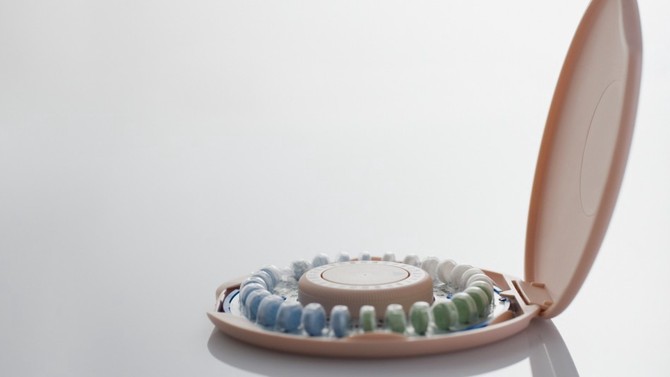Is This Why You're Gaining Weight?
You know that depression and lack of sleep can affect your weight. But you feel happy and are getting your 7-to-9 hours every night. So why do the pounds keep coming?
By Emma Haak
The situation: You've had weight issues since your mid-teens.
Why you're gaining: Polycystic ovarian syndrome (PCOS) is believed to affect up to 10 percent of premenopausal women, and more than half of the women who suffer from it are overweight or obese, says David Ehrmann, MD, a professor of medicine and the director of the University of Chicago Center for PCOS. It generally starts in the mid-teens, and patients often have a history of weight problems that started around the same time. "It's not really clear if the PCOS is causing it, but we know that obesity and a tendency to gain weight are associated with the syndrome," Ehrmann says. In fact, a 2013 study in Obesity found that women with self-reported polycystic ovary syndrome had higher BMIs and greater 10-year weight gain than women without PCOS. Weight gain alone isn't a sign that you suffer from it, though. Other symptoms that merit a trip to the doctor: a history of irregular periods (the length between is often 35 days or more, so you may only have 6 or 7 periods per year), acne and excessive body hair in areas like your upper lip and chin, chest, abdomen, back and inner thighs.
How to stop it: The first-line treatment is often birth control pills to regulate your menstrual cycle and stop the hair growth, but "the options for weight reduction in a PCOS patient are no different than any other patient who's overweight," Ehrmann says. So while the weight gain may stop, you won't lose the pounds you gained unless you work at it through diet and exercise.
Why you're gaining: Polycystic ovarian syndrome (PCOS) is believed to affect up to 10 percent of premenopausal women, and more than half of the women who suffer from it are overweight or obese, says David Ehrmann, MD, a professor of medicine and the director of the University of Chicago Center for PCOS. It generally starts in the mid-teens, and patients often have a history of weight problems that started around the same time. "It's not really clear if the PCOS is causing it, but we know that obesity and a tendency to gain weight are associated with the syndrome," Ehrmann says. In fact, a 2013 study in Obesity found that women with self-reported polycystic ovary syndrome had higher BMIs and greater 10-year weight gain than women without PCOS. Weight gain alone isn't a sign that you suffer from it, though. Other symptoms that merit a trip to the doctor: a history of irregular periods (the length between is often 35 days or more, so you may only have 6 or 7 periods per year), acne and excessive body hair in areas like your upper lip and chin, chest, abdomen, back and inner thighs.
How to stop it: The first-line treatment is often birth control pills to regulate your menstrual cycle and stop the hair growth, but "the options for weight reduction in a PCOS patient are no different than any other patient who's overweight," Ehrmann says. So while the weight gain may stop, you won't lose the pounds you gained unless you work at it through diet and exercise.
Published 06/29/2015


